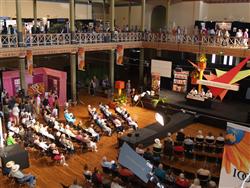 This course enables you to develop management policy, procedural, and planning aspects of a recreation oriented service or facility.
This course enables you to develop management policy, procedural, and planning aspects of a recreation oriented service or facility.
It covers policy development and management, meeting operational procedures, planning process managment, meeting and conference management as well as supervising reports.